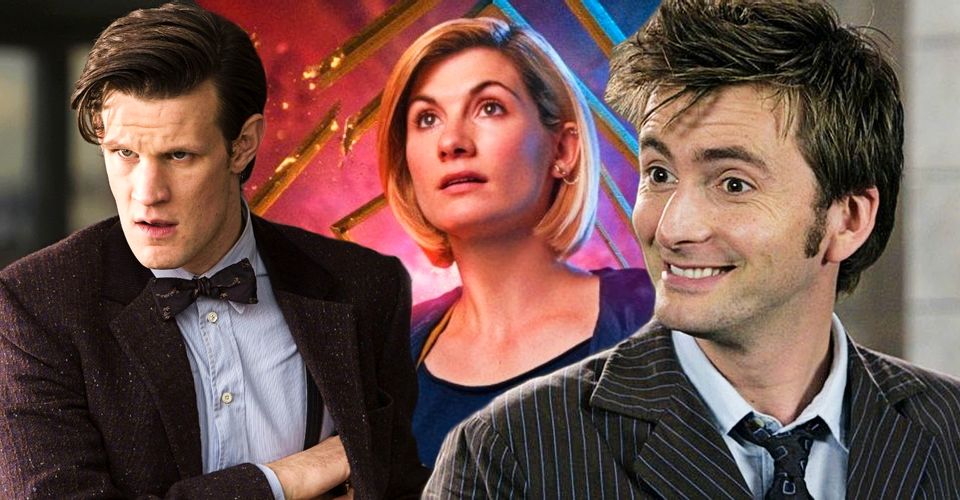Matt Smith & David Tennant Can’t Save Doctor Who

Rumors persist that both Matt Smith and David Tennant will be returning to Doctor Who for next year’s 60th anniversary, but they can’t save the series from its biggest issue. The 50th anniversary of Doctor Who was a big deal, with a weekend-long celebratory convention in London and a global simulcast on TV and in cinemas. Alongside the anniversary special “The Day of the Doctor”, there were new documentaries, a comedy special featuring past Doctor actors Peter Davison, Colin Baker, and Sylvester McCoy, and the announcement of two new Doctors in the forms of John Hurt and Peter Capaldi.
The cherry on the top of the anniversary cake was the return of Tom Baker as an enigmatic future version of the Doctor. 2013’s 50th anniversary year was, appropriately enough, a celebration of the past, present, and future of Doctor Who. The 50th anniversary was also the culmination of almost ten years of storytelling. In showing the truth of what happened on Gallifrey’s supposed final day, Steven Moffat closed the book on the Time War mythology first introduced in 2005. A decade after Doctor Who‘s return to television was announced in the 40th anniversary year, the series was reinventing itself again, looking towards the future. In 2014, Steven Moffat and Peter Capaldi, both fans of the series since childhood, embarked on three seasons that broke down and rebuilt the character of the Doctor. By the time Peter Capaldi handed the TARDIS key over to the first female Doctor, Jodie Whittaker, there was fertile ground to do something brand new.
DoctorWho season 11 took audiences into territory previously unexplored by its 21st-century incarnation, but the Chris Chibnall era soon developed a detrimental fixation on mythology. Less than seven years after the 50th anniversary triumphantly restored the Time Lord homeworld, it was once again cinders and ash by the end of season 12 opener “Spyfall”. If that wasn’t bad enough, the introduction of Jo Martin as a previously unknown incarnation of the Doctor further emphasized the feeling that Doctor Who had become a greatest hits compilation. The return of David Tennant and Matt Smith would only feed into this nostalgic obsession.

The 10th Doctor is as definitive for Generation Z as Tom Baker’s 4th was for Generation X. David Tennant’s return as the Doctor would undoubtedly boost public interest in the run-up to the 60th anniversary. However, Tennant fronting the anniversary special rather than Jodie Whittaker or a new Doctor could inadvertently vindicate the more vocal and toxic social media commentators who feel that the past four years have been a disaster that’s best forgotten. The potential for Matt Smith to also return as the 11th Doctor should go some way to offset this problematic optic, but it doesn’t fix the fundamental issue. For a show that can go anywhere, Doctor Who is disappointingly obsessed with revisiting its past. The bold mythology-shifting reveal in the series 12 finale was inspired by the 44 year old serial The Brain of Morbius.
Anniversaries should pay tribute to the past whilst committing to the future, and a multi-Doctor story is an obvious way to do this – teaming up past Doctors to secure the future of the universe. However, there have been so many of these multiple Doctor stories across comics, audio plays, and television episodes recently that relying on past incarnations to entice viewers back to the show feels retrograde. Rather than stick to this tired format, the best celebration for Doctor Who‘s 60th anniversary would be to relaunch the series with a brand new Doctor and a bold new vision for the show from Russell T Davies.
About The Author

















